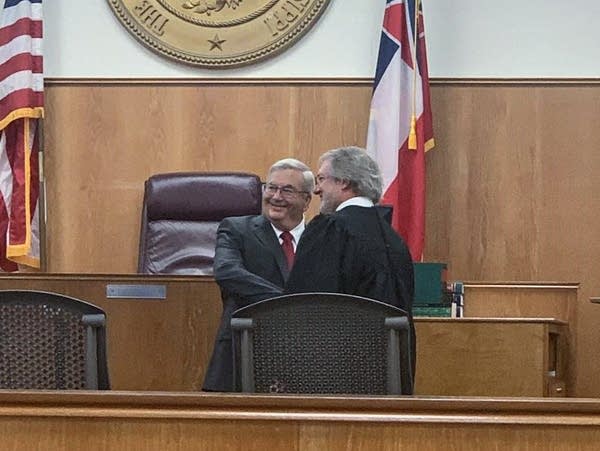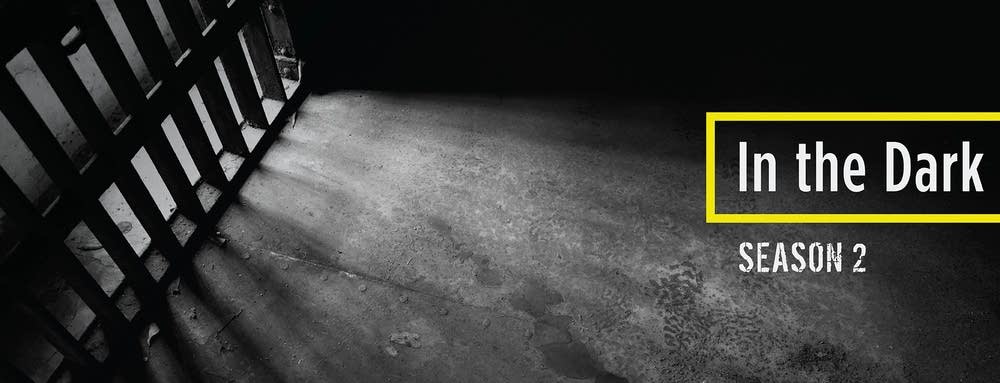Curtis Flowers released on bail
A Mississippi judge allows Flowers to leave jail to await a possible seventh trial.

Curtis Flowers walked out of jail at 4 p.m. Monday, 23 years, six trials, and four death sentences after the day he first walked in. He is finally — at least temporarily — free after posting a bond of $25,000.
Earlier in the day, a judge granted Flowers' request for bail and delivered a scorching ruling that called the state's case against Flowers into question and excoriated District Attorney Doug Evans' recent handling of it. Evans was not there to hear it.
Flowers has been tried six times for the 1996 murders of four people at the Tardy Furniture store in Winona. Though his latest conviction and death sentence were overturned by the U.S. Supreme Court in June, the grand jury indictment charging him with four counts of capital murder remains in place.
In late September, Flowers was transferred off death row. Since then, he'd been held in a county jail to await a possible seventh trial.
When Flowers walked out of Winston-Choctaw County Regional Correctional Facility on Monday, the area was under a tornado watch, the wind whipping fiercely. His lawyers walked behind him and two sisters — Priscilla Ward and Charita Baskin — stood at his sides, grasping their brother's arms. Flowers was wearing the same dark suit he'd worn at his bail hearing that morning.
"I feel good right now. I'm happy," he told reporters before heading toward a car. Said Ward: "We're going to go for fried fish."
Though his freedom may be temporary — Flowers may face yet another trial — he said he was looking forward to spending Christmas with his family for the first time in decades. "I'm so excited right now. I can't even think straight," Flowers said.

His release is a remarkable development in an already extraordinary case.
Flowers has never before been granted bail. In capital cases, it's rarely offered. But Mississippi judges can grant it in instances where there isn't strong evidence of a defendant's guilt. Indeed, Circuit Judge Joey Loper's ruling read like a referendum on the diminished state of the case against Flowers.
"In the next trial, should one occur, the state of Mississippi is faced with the prospect of having to present a far weaker case to the jury than it's had in the past," Loper said in issuing his ruling. "The court is of the opinion that, in the least, reasonable doubt as to Mr. Flowers' guilt can be entertained."
The judge ticked through the names of several key prosecution witnesses who have recanted since Flowers was tried in 2010, a trial that Loper presided over. And the judge acknowledged that "possible exculpatory evidence" has surfaced, including findings by the APM Reports podcast In the Dark, which point to Willie James Hemphill as a possible alternate suspect.
"The state has failed to convince this court that the proof of Mr. Flowers' guilt is evident or the presumption great so as to deny bail," Loper said, before setting the bail amount at $250,000, of which Flowers had to pay 10 percent.
Monday's hearing marked the first time Flowers had set foot in his hometown in nearly a decade. The courtroom in Winona was nearly full, mostly with people who appeared to be supporting Flowers.

His attorney Rob McDuff repeated arguments that he'd included in his motion asking for bail in September, contending that none of the conditions for denying bail applied to Flowers. "The State's only direct evidence — the claim by Odell Hallmon that Mr. Flowers gave him a jailhouse confession — proved untrue when Hallmon recently admitted in a recorded interview that his testimony was 'a bunch of lies,'" McDuff had written. "To deny bail to Mr. Flowers would improperly 'punish him prior to a guilty verdict while he is clothed with the presumption of innocence.'"
McDuff also argued for the application of an obscure Mississippi law that requires bail be granted in cases in which a defendant had two trials on a capital indictment end in hung juries, as Flowers has. The lawyer made two other points: Flowers has no prior criminal record and corrections officers have called Flowers a model prisoner.
"This special rule for [denying bail in] capital cases comes out of the theory and the long-held principle in the law that a person facing the possibility of death as a punishment is more likely to flee than anyone else who doesn't face that potential punishment. It doesn't apply to Curtis Flowers," McDuff said.
"He's not a 22-year-old person who is facing an airtight case against him and would go on the run. He is a person with a significant chance of acquittal who wants to stay and abide by the court's rules and see this case to its finish," McDuff added.
The state had filed no written response to McDuff's motion in advance of the hearing.
On Monday morning, a prosecutor from Evans' office, Adam Hopper, offered only a brief rebuttal to McDuff's arguments. "Cases are tried in a court of law, not in the media," Hopper said, in an attempt to direct the judge's attention away from recent findings calling Flowers' guilt into question. "You heard the testimony in the prior trials ... that Mr. Flowers was the only suspect. And your honor ...,"
At this point Judge Loper cut Hopper off.
"Well, I've heard that. But yet, after the fact, now I'm hearing that somebody else [Hemphill] was picked up and held for a number of days that was, in fact, a suspect," Loper said. "How does the state reconcile that?"
"There is no other evidence ... that [Hemphill] had anything to do with it other than maybe he had a pair of shoes and maybe someone saw him around the store that day, which ..." Hopper replied, before the judge again broke in.

"Well," Loper shot back, "that's about the same type of evidence the state has against Mr. Flowers, isn't it?" Hopper eventually stood down.
After a recess, Loper ruled that Flowers should be granted bail based on both of McDuff's arguments: that it was required by law because of Flowers' two previous mistrials and that it was required by the Mississippi Constitution because of the frailty of the state's case.
As Loper read the ruling, and it began to be clear that he would side with the defense, McDuff reached over and touched his client's hand. Some people in the courtroom began to cry. Loper concluded with a stern censure of Evans, which he addressed to Evans' assistant.
"Mr. Hopper, your boss chose, for whatever reason, not to be here today. I don't know why he's not here. I expected him to be here. Nonetheless, he is not. So, I expect you to convey the message to him that this court expects prompt action from that office on all matters that are ordered," Loper said.
Evans could not be reached for comment at his office. At the same time as Flowers' bail hearing, Evans was at a swearing-in ceremony in Grenada County for newly elected officials. He was recently re-elected district attorney for the state's Fifth Circuit Court District. He ran unopposed.

Evans, whose misconduct resulted in the reversal of four of Flowers' convictions and a stern rebuke from the Supreme Court this summer, was sued by the NAACP last month in federal court over his office's practice of striking black prospective jurors at nearly 4.5 times the rate of white ones.
After appearing in court, Flowers was taken back to the jail. Within hours, he posted the $25,000 necessary to secure his bond. The funds were donated by a supporter in the New York City area.
Flowers, now 49, will stay with family while he's out. He said that his mother, Lola — who died in July 2018 — had been looking forward to this day. "She would probably be doing flips right now. ... She always knew it would come. She said she didn't know if she'd be here or not."
Flowers' location will be tracked by ankle monitor. He won't be allowed to leave home other than to attend a court date or a doctor's appointment.
Though he may again be "clothed with the presumption of innocence," Flowers' ordeal is not yet over.
His lawyer has filed two other motions — one seeking dismissal of the charges against Flowers and the other asking for the removal of Evans from the case. The long-time district attorney hasn't yet responded to either, and the case may still head to an unprecedented seventh trial.


